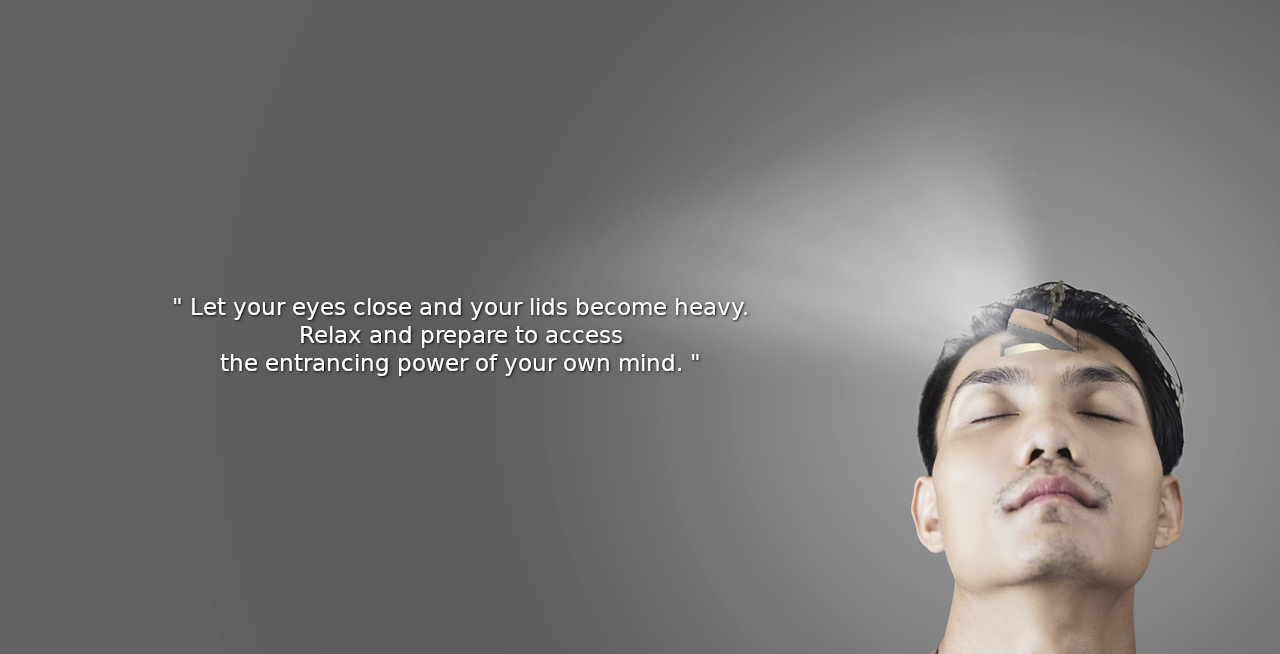
The U. S. Government defines hypnosis as“The bypass of the critical factor of the conscious mind and the establishment of acceptable selective thinking.”
What does that mean? To help you get a better picture of what happens during hypnosis, let’s first discuss the functions of conscious and subconscious mind. Psychologists, philosophers and spiritual teachers have debated the categories of consciousness identifying, according to which particular discipline, anywhere from three to seven levels. But for our purposes right now, let’s keep it simple. To this end, and for clarity, the “subconscious” and “unconscious” will be combined as one part of the mind and the terms used interchangeably
Your conscious mind is everything in your immediate awareness. It includes your willpower, rational thought and your analytical processes.
While it is known that the senses gather about 11 million bits of information per second, conscious activity only has a maximum awareness level of 50 bits per second. And, further, according to psychologist George Miller in his celebrated paper “The Magical Number Seven, Plus or Minus Two: Some Limits on Our Capacity for Processing Information,” the working memory has a limit of 7 plus or minus 2 bits of information. This means that your conscious mind can only work with a very small fraction of your brain’s capacity.
Therefore, a huge compression of information is obviously taking place outside of conscious control. In fact, it appears that the majority of our normal activities, even one as simple as walking, requires a larger information processing capacity than the conscious mind could possibly handle. These activities, practiced and automatic, are the realm of the subconscious mind.
Your subconscious mind contains everything that is hidden from your awareness. It is responsible for the activities of your autonomic nervous system – including the beating of your heart, your breathing and your digestive processes – all of which continue to operate without conscious interference. It contains your strategies, beliefs, emotions, and habits. It holds all of your memories. The skills that you have learned and mastered – such as driving, tying your shoes and speaking – you no longer have to think about as your subconscious mind performs these tasks automatically. In fact, most of what you do is accomplished by your subconscious mind. It is genius. It is also the most powerful and compelling part of your mind. Habits that are established in this part of the mind cannot be overcome with willpower. Willpower, which is part of your conscious mind, is immediate, but alas, only temporary. Your subconscious habits and impulses, operating from the more powerful part of your mind, eventually prevail, overriding the resolve of the rational, conscious mind. Therefore, to make any substantial change in your habits, it is the subconscious mind that must change.
So, getting back to the official definition of hypnosis, what does “… bypass of the critical factor …” mean? Imagine that between your conscious and your subconscious mind is a cynical little guy named “Critical Factor” whose job it is to sort out fact from fiction. He has the power to choose what becomes part of your belief system and what is categorized as irrelevant. He feels threatened by change and will reject any suggestion that does not match your current belief system. This part of your mind has many highly developed defense mechanisms in place. Now imagine that you could waltz right past this little “Critical Factor” guy and allow new habits and beliefs to go straight into your subconscious mind where they become accepted as fact. Now you can command that your true desires supersede your old self-sabotaging behaviors and unwanted habits.
This is where the “… establishment of acceptable selective thinking …” becomes a reality. The key word in this sentence is “acceptable.” While in hypnosis, suggestions that you want can be introduced into your subconscious. No one can introduce unwanted thoughts or behaviors into your subconscious. Contrary to the popular movie stereotype and dramatic stage show presentations you may have seen, you are in complete control during hypnosis.
Hypnosis is actually a way to focus your mind. It is very much like being absorbed in a good movie or book. You enjoy being emotionally engaged with the story, but you are aware that it is just a movie or a story. While you are in hypnosis, you have the choice to become as deeply involved with the hypnotists words as you want. Those suggestions that are appealing to you become accepted by your subconscious. The hypnotist is not controlling you, rather, hypnosis gives you even more control over yourself.
Resolve and willpower often fail when we attempt to change a behavior. This is because while we consciously desire the change, our subconscious mind has not assimilated the new behavior. It’s operating on auto-pilot.
Think of the conscious and subconscious parts of your mind as working partners. The conscious mind would be the “The Boss” and the subconscious mind would be the employees. The employees (subconscious) want to do a good job, but if the “The Boss” does not give clear directions, they will be confused, and the result less than optimal. If the boss wants to make procedural changes, he must convey this information to his employees. If he fails to do this, they will simply continue doing their job using the same old methods. Even if he details his instructions in an email, if the memo gets marked as “spam,” (the critical factor) his transmission will not be received.
Your mind is no different. Your subconscious mind wants to work for your highest good and has already established its strategies. It operates with reactions, habits and beliefs that were installed much like a program on your computer. Acquired skills, socialization and protective mechanisms are automatic. Most were established in childhood. But, as you mature, some of your deeply embedded “internal programming” becomes counterproductive. What may have a made sense at one time, is now a problem.
This is where hypnosis can help you make the changes you want. While in hypnosis, you can easily eliminate unwanted habits, sharpen your focus, gain greater control, release limitations, accept affirmative beliefs and accelerate improvement in the areas you long to master. Where your subconscious was previously set on auto-pilot in the opposite direction of your goals, hypnosis can readjust them to aim you strait toward your goals just as automatically.

